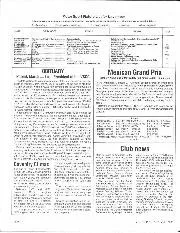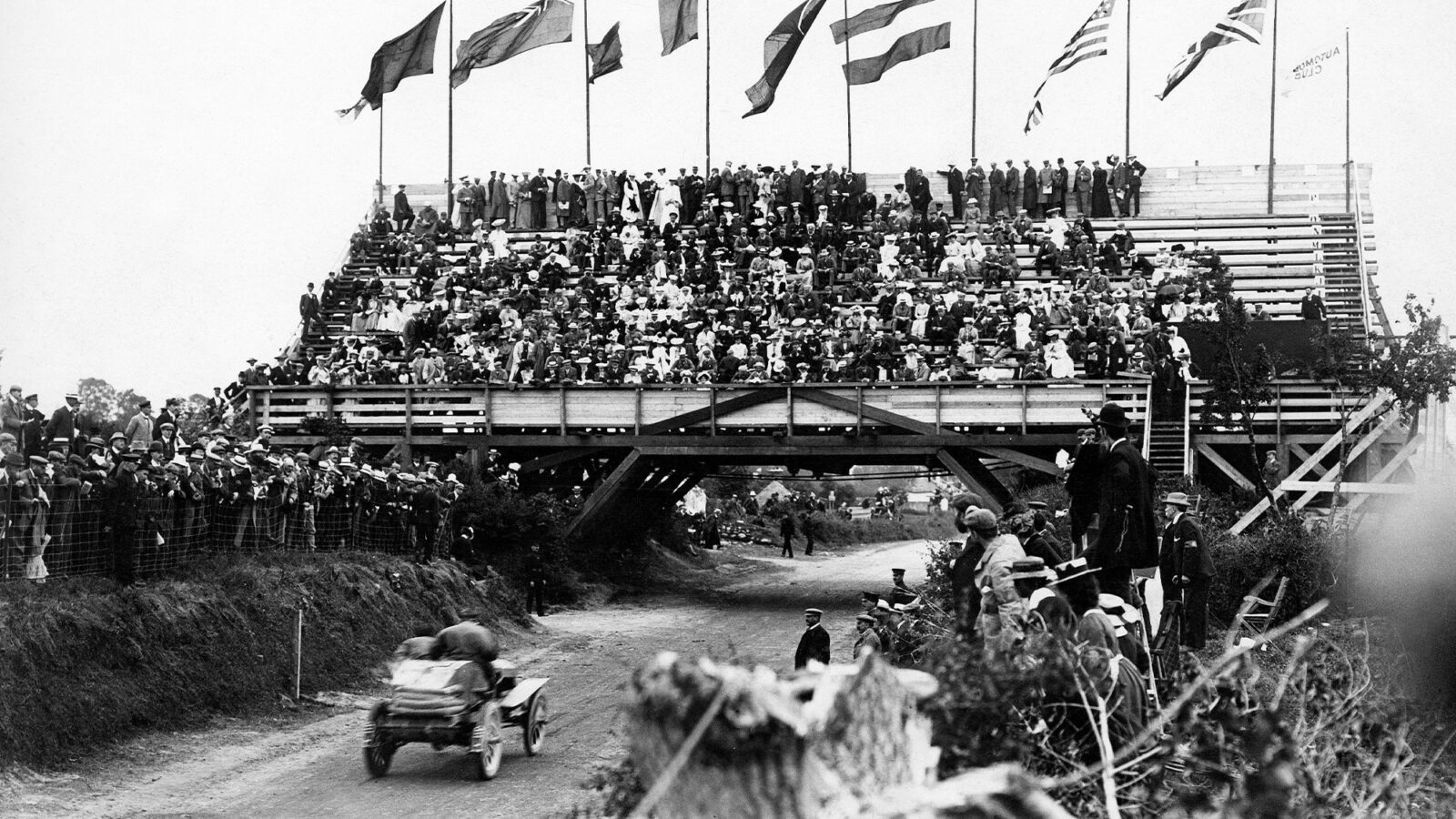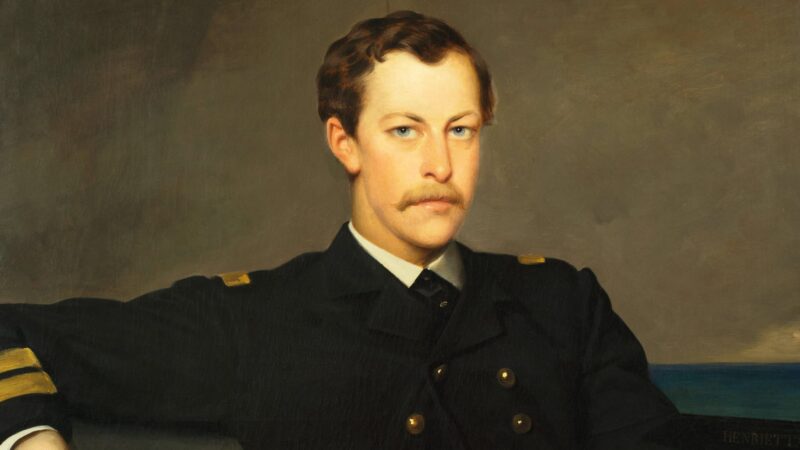
Formula One: 1986 Mexican Grand Prix
October 12th, 68 laps of Mexico City Park circuit —300.8 kilometres In the reinstated Mexican GP Gerhard Berger scored an impressive victory with a Benetton-BMW aided by running through non-stop…

Crowds at the Gordon Bennett Cup at Athy, Ireland, 1903
He is both an expression of disbelief and a name on a racing trophy, but in our world we don’t hear much more about the man called Gordon Bennett. This book, while anchored on the Gordon Bennett motor races of 1900-05, heads in other directions as well to fill in some of the memorable and dramatic parts of a colourful life.
Having inherited a fortune and the ownership of the New York Herald from his equally controversial father, Bennett Jr proved an enterprising publisher, hiring Mark Twain and funding an expedition to find the Northwest Passage and another in 1879 to reach the North Pole, and most famously sponsoring Stanley’s expedition to find Livingstone. And, says Lynch, he grumbled about Stanley getting all the credit.
Mad on competition, Bennett Jr instituted and won the first transatlantic yacht race. He met Queen Victoria, yet lived an often drunken playboy life, shocking New York society so that he had to move to Paris. Lynch doesn’t question the truth of the infamous fireplace incident, but maybe this isn’t the place.

Gordon Bennett: he man himself
In Paris, GB bought his first car and had the idea of an international trophy, named after himself of course. Having described the man, Lynch runs us through early car racing (including the 1895 Chicago race, the first in America, at which my great-great-uncle was an official!), then goes into the Gordon Bennett races in detail, especially what he admits is his favourite, the 1903 event in Ireland, which was the first motor race on a closed circuit. These brought huge attention and big crowds to this new arena of progress, though Bennett’s ‘three vehicles per country’ rule finally stifled his competition after 1905 as more and more manufacturers wanted to race, leading to the new, more open grand prix idea. Meanwhile Bennett continued to live in luxury in Paris and the Riviera, ran the paper remotely and gave prizes for ballooning, flying and football.
Handy circuit maps accompany the many, but small, photos. Despite some editing slips (‘Levagh’, Paris-Bordeaux ‘Trail’) this is a useful work, a crossover between biographies of the man and histories of the races which gives us an idea of a figure you couldn’t forget. Whether Lynch’s statement “I firmly believe Bennett was the true founder of Formula 1” stands up, he certainly fanned a flame.
At the Greatest Speed
Patrick Lynch
Unicorn, £25
ISBN: 9781913491840